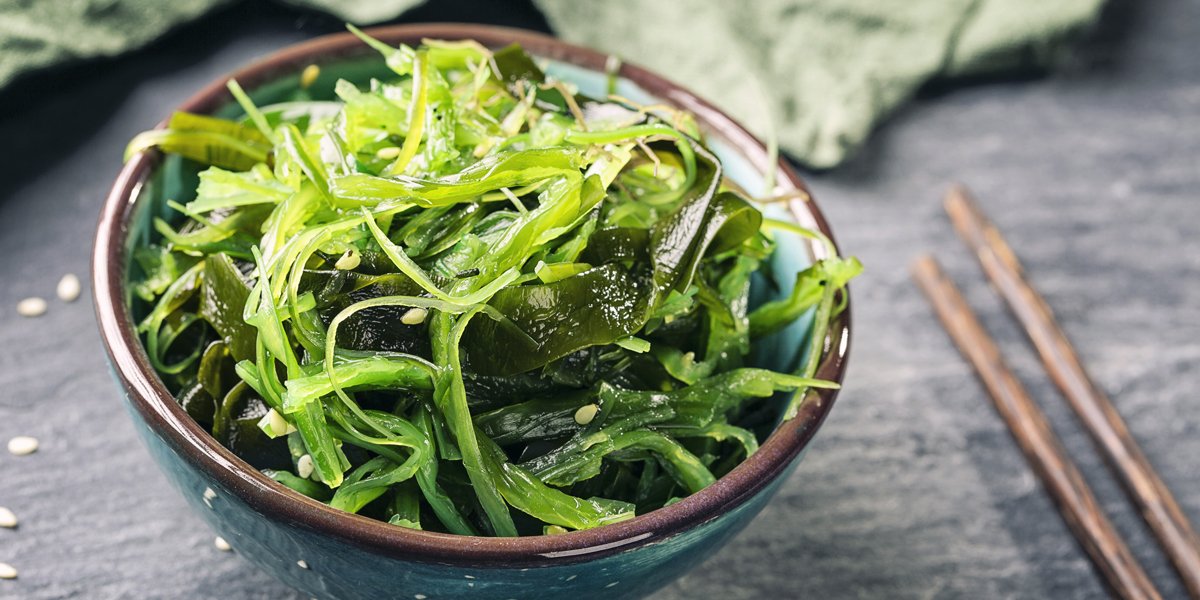Omega-3 Fatty Acids—Everything You Need to Know

It’s likely that you’ve heard of omega-3 fatty acids. But what are they? And how much do you need? Read on to learn everything you need to know about omega-3 fatty acids, and how to make sure you’re getting enough of the right ones to support your health.
What's the deal with dietary fats?
Before we dive into omega-3s, let’s first talk about fat in general. Dietary fats are classified by structure, and can either be saturated or unsaturated depending on the structure of the double bonds.
There are two types of unsaturated fatty acids: monounsaturated fatty acids (meaning the fatty acid has one double bond) and polyunsaturated (meaning more than one double bond).
Unsaturated fatty acids, particularly polyunsaturated fatty acids, are known to be beneficial to cardiovascular health¹, and are encouraged for consumption over saturated and trans fatty acids.
Monounsaturated fatty acids are found in nuts, avocados, and olive oil, while polyunsaturated fatty acids are found in things like sunflower seeds, walnuts, and fatty fish.
So, what are Omega-3s and Omega-6s?
Omega-3 fatty acids and omega-6 fatty acids are within the polyunsaturated fatty² acid family. These two fatty acids are essential nutrients, meaning the human body needs to get these nutrients from food.
The Recommended Dietary Allowance (RDA) for omega-3 fatty acids is 1.6 grams per day for men and 1.1 grams per day for women.
Omega-6 fatty acid is found abundantly in plant-based foods, including nuts, cereals, whole-grain breads, soybean oil, hemp oil, corn oil, and pumpkin seeds.
Omega-3 fatty acids are abundant within fatty fish, krill, and fish oils, and in some plant-based sources including flax seeds, chia seeds, hemp seeds, seaweed, certain beans, and some winter squashes. It should be noted that fish derive their omega-3 fatty acids from consuming algae³, and that plant-based algae supplements exist to help people get omega-3s directly from the source (and vegan friendly too).
Within omega-3 fatty acids, there are long and short chain omega-3s, known as ALA, DHA and EPA, and the distinctions matter.
ALA, DHA, and EPA
ALA (alpha-linolenic acids) are short-chain omega-3 fatty acids. These are found plentiful in the plant kingdom in foods such as flaxseed and chia seed.
DHA and EPA are two subtypes of omega-3 fatty acids. Long-chain omega-3 fatty acids are known as EPA (eicosapentaenoic acid) and DHA (docosahexaenoic acid) are a bit harder to consume from plant-based foods. These fatty acids are abundant in fish and fish oil, although many fish oil supplements are subject to controversy in terms of potency and quality. But because there are relatively few plant-based sources of these essential nutrients, many vegans have a difficult time consuming enough of them, particularly DHA.
While the body can convert ALA to EPA and DHA, often times, the conversion to DHA isn’t sufficient enough to ensure the body gets what it needs, and studies have shown that often times vegans have low blood levels of DHA.
There is no RDA for DHA and EPA. The American Heart Association4 recommends 500mg of DHA and EPA combined per day, though other studies recommend more DHA. DHA5 is found in high concentrations in cell membranes in the retina, and is important for visual function. It’s also an important component of the brain and central nervous system. DHA is important for visual and neurological development in infants, so adequate DHA consumption during pregnancy is essential for expectant moms.
Vegan sources of DHA are few and far between. In addition to certain seaweeds and algaes, many vegans rely on supplements for DHA.
Some studies6 have examined the impact of vegan omega-3 algae supplements on DHA in blood levels, and have shown that algal oils are effective in increasing serum levels of DHA.
Whether you’re a carnivore, pescetarian, vegetarian, or vegan, monitoring your omega-6 and omega-3 consumption is important. A diverse, robust diet, and/or some supplementation is a good way to ensure your bod is getting what it needs for optimal physical and mental health.
References- https://www.ncbi.nlm.nih.gov/pubmed/15622714
- https://www.ncbi.nlm.nih.gov/pmc/articles/PMC4153275/
- http://www.npr.org/templates/story/story.php?storyId=15823852
- http://www.heart.org/HEARTORG/HealthyLiving/HealthyEating/HealthyDietGoals/Fish-and-Omega-3-Fatty-Acids_UCM_303248_Article.jsp
- http://lpi.oregonstate.edu/mic/other-nutrients/essential-fatty-acids
- https://www.ncbi.nlm.nih.gov/pubmed/24261532









